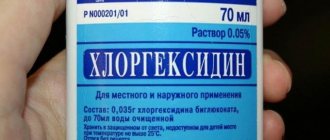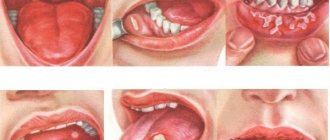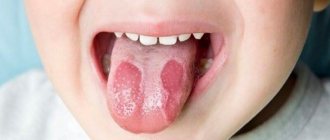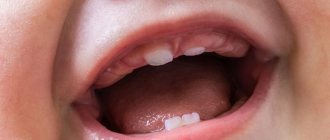Complications after chemotherapy in one or another combination of symptoms of varying severity are mandatory with each cycle, therefore clinical studies take into account the effectiveness of the chemotherapy, the spectrum and frequency of adverse reactions. In antitumor therapy, a balance between effectiveness and toxicity is impossible, which is due to the indiscriminate action of drugs.
- Types of complications after chemotherapy
- Feeling after chemotherapy
- Degree of complications
- How long do side effects last?
- Examination after chemotherapy
- What to do after chemotherapy?
- Treatment of complications
- Pregnancy after chemotherapy
- Sex after chemotherapy
- Periods after chemotherapy
- Life expectancy after chemotherapy
- Disability after chemotherapy
- Prevention of complications after chemotherapy
Types of complications after chemotherapy
Chemotherapy (CT) harms every cell of the body; only healthy cells that have passed a full stage of development are more resistant to cytostatics. Malignant cells grow faster, neglecting their own structure; their main task is rapid reproduction. The first contact of a malignant tumor with an anticancer drug is fatal to its cells, but then a defense system against chemotherapy is created, which allows it to survive and invade new areas.
Rapidly maturing normal cells, such as leukocytes and platelets, reproductive and mucous membrane-forming cells, are also not resistant to chemotherapy, because their populations are not programmed for long-term existence.
According to the mechanism of development, complications after chemotherapy are divided into 4 large groups:
- caused by the action of the drug , including local damage and systemic effects specific to a particular cytostatic and characteristic of all drugs. An example of a local reaction is cystitis after irinotecan, systemic specific damage is pneumotitis after bleomycin, nonspecific is leukopenia;
- caused by immune disorders , including allergic and autoimmune processes. For example, a systemic allergy up to anaphylaxis develops to taxanes, a general decrease in immune defense is manifested by the ease of development of inflammatory diseases and activation of the herpes virus;
- intolerance to chemotherapy , so the absence of a cellular enzyme leads to unusually high toxicity of fluorouracil;
- Unfavorable drug interactions are especially pronounced with combined chemotherapy, since taxanes with cisplatin doubly harm the nervous system.
Complications occur at different times:
- acute - during the administration of a cytostatic drug and on the first day after chemotherapy;
- the next ones occur on the second day after the cycle;
- delayed ones develop after 7 days;
- distant ones - at least in a month and can appear in years.
From the digestive system
Mucosal side effects have given chemotherapy a bad name:
- nausea and vomiting in the near future;
- delayed mucositis - delayed destruction of the mucous membranes of the oral cavity (stomatitis), esophagus (esophagitis), stomach (gastritis), small intestine (enteritis), large intestine (colitis) and rectum (rectitis);
- hepatotoxicity will appear in the long term, after several courses of therapy.
Nausea, and especially vomiting, can be prevented and reduced. Mucositis is varied in severity and localization, it begins with inflammation and swelling, then areas of necrosis form from microscopic to visible. With stomatitis, it is impossible to drink or eat, esophagitis and gastritis are manifested by heartburn, intestinal damage is caused by stool disorders, pain, nausea and anorexia are always a concern.
Toxic liver damage develops gradually, when only the biochemistry of the blood changes, the liver tissue itself does not hurt, the pain is caused by stretching of the capsule as the liver enlarges. In severe cases, jaundice with fever and intoxication is possible, but the most dangerous thing is liver failure, acute or after a few years as a result of liver fibrosis.
From the immune system
The effect of chemotherapy on the immune system is most often manifested by the ease of infection, when after a course endless colds “cling”, fungi that harmlessly live on the mucous membranes are activated, leading to lingering thrush. An extreme case of immune suppression is pneumonia.
Immunotherapy with monoclonal antibodies excessively activates the defense system, leading to autoimmune manifestations. Immune-mediated toxicity involves multiple organ systems, manifesting as autoimmune hepatitis, pneumonitis, skin and vascular lesions, usually with intoxication, fever and deterioration.
From the circulatory system
A feature of most chemotherapy drugs is irritation of the mucous membrane of blood vessels, which is reduced by changing the technology of intravenous administration. The veins of the upper extremities, which suffer contact chemical burns, suffer to a greater extent from cytostatics.
Some medications have to be administered either very quickly - as a bolus, others, on the contrary, very slowly by drip, spending from a couple of hours to several days per administration. Clinically, vascular damage is manifested by phlebitis: pain and internal inflammation, swelling and redness of the skin over the vessel. The inflamed mucosa thickens, slowing blood flow leads to thrombosis. After repeated administration of a cytostatic, the lumen of the vein narrows and can be completely obliterated.
A special type of complication of chemotherapy, extravasation is the rupture of a vessel with the release of chemotherapy into the surrounding tissue. This is not due to the nurse’s clumsiness; the fragile vascular wall, which has repeatedly survived a cytostatic burn, is exfoliating.
From the musculoskeletal system
The skeleton suffers from long-term hormonal therapy; necrosis of the lower jaw is specific to bisphosphonates. Chemotherapy damages the lining of the joints, similar to mucositis, which results in inflammation with swelling, pain and limited movement. Immune and targeted drugs lead to autoimmune arthritis.
Damage to the muscular skeleton by cytostatics is mediated by neurotoxicity, when muscle cramps and pain are caused by damage to the nerves, but not to the muscle tissue itself.
From the nervous system
The neurotoxicity of antitumor therapy deserves a separate discussion. The side effect is inherent in several groups of cytostatics and manifests itself as damage to peripheral nerves and, rarely, to the brain and spinal cord. In the vast majority, sensitivity is impaired, and movements are less affected.
Critical doses of drugs associated with the development of neurotoxicity have been determined; the time of development of damage is variable and may appear several months after completion of treatment. The peculiarity is the duration of clinical symptoms; in some patients, complete recovery does not occur.
Target organs
Some drugs have an affinity for certain cells. On the one hand, this is a useful targeting property that allows targeted killing of malignant cells. Treatment regimens for squamous cell skin cancer include bleomycetin, which accumulates in the epithelium, but accumulation of drug metabolites in the pulmonary epithelium leads to “bleomycin lung” with prolonged pneumonia and pulmonary failure.
Another example of a target organ for a cytostatic is damage to the renal tubules by cisplatin, leading to the development of renal failure. Anthracyclines work similarly, selectively damaging myocardial cells.
The target organ for immuno-oncological drugs is lymphocytes; their activation helps fight melanoma and lung cancer, but on the other hand they cause specific immunological side effects described above.
Appearance
All cytostatics “spoil” not only the mucous membranes, but also the skin, making it pale and sluggish. Skin appendages - hair and nails - suffer; they grow poorly, are dull and flaking. Hair falls out and thins.
Most drugs do not cause total baldness - alopecia, but partial alopecia with fluffy hairs from internal weakness and nests of bald spots traumatizes a woman no less than a completely bald head. Subsequently, the hair changes color and structure - it thickens and curls.
Immuno-oncological drugs cause specific inflammation of the skin, followed by profuse peeling of the feet and palms or widespread pimples - acne. All manifestations disappear without a trace - no scars remain, but several months of moral suffering pass before complete recovery.
Oral care during cancer treatment
Dental care
Before starting cancer treatment, your doctor may advise you to see a dentist. If you need to see a dentist during treatment, ask the dentist to call your Memorial Sloan Kettering (MSK) doctor first.
Brushing your teeth
- Brush your teeth and tongue gently within 30 minutes after eating. Use a small, soft-bristled brush. If the pain in your mouth is too severe for a regular soft toothbrush, you can purchase a brush with super-soft bristles at the pharmacy. Here are some examples of such brushes: Biotene® Supersoft Toothbrush;
- extra-soft gentle toothbrush Sensodyne® Extra Soft;
- Colgate® 360 Sensitive Pro-Relief Extra-Soft Toothbrush with Compact Head;
- soft toothbrush with compact head Oral-B® Indicator 35.
Flossing
Brush your teeth with unwaxed dental floss once a day before bed. If you haven't been doing this regularly before treatment, don't start now.
Rinsing
- Rinse your mouth every 4-6 hours or more often as needed. Use one of the following rinses: one quart (4 cups (500 ml)) water mixed with 1 teaspoon salt and 1 teaspoon baking soda;
- one quart of water (500 ml) mixed with 1 teaspoon of salt;
- one quart of water (500 ml) mixed with 1 teaspoon of baking soda;
- water;
- A mouthwash that does not contain alcohol or sugar, such as Biotene® PBF or BetaCell™ mouth rinses.
Moisturizing lips
- Use a lip moisturizer (such as Aquaphor®, Vaseline®, Eucerin Original®, or A&D® Ointment) 4 to 6 times daily to prevent dry lips.
- Do not apply lip moisturizers 4 hours before your head and neck radiotherapy session.
to come back to the beginning
Feeling after chemotherapy
How you feel after chemotherapy depends not only on the combination of drugs used and their doses, but also on the initial state of health, gender (women have more complications), and psychological characteristics. It is clear that after the cycle you feel worse than before.
All cycles are tolerated differently, and adverse reactions after the first chemotherapy are not similar to the toxicity of subsequent cycles. Negative manifestations from the blood, heart muscle, kidneys and nervous system may worsen. Mucositis, on the contrary, is easier because the most sensitive layers of mucous cells have already died and strong scar tissue has formed in their place.
Well-being can be improved, it is also possible to speed up tissue restoration, and with a future course, some of the adverse reactions can be transferred to a mild degree or seriously leveled out, as they can do in our clinic.
Features of peri-implantitis
The course of the inflammatory process with peri-implantitis is more severe. The peculiarity of peri-implantitis is that the area of inflammation is not separated from the bone by a zone of connective tissue, as in periodontitis (as can be seen in the figure above), but is in contact with the bone. In periodontitis, the gum pocket has a layer that separates it from the bone, so the bone tissue is separated from microbes. With peri-implantitis there is no such layer. The degree of bone resorption (bone loss) can be assessed using a control x-ray taken after the installation of dentures.
Degree of complications
Side effects are classified according to severity as follows:
- 0 degree - no manifestations;
- 1st degree - minor manifestations that do not change the quality of life;
- Grade 2 - moderate symptoms that force the patient to limit activity; it is difficult to cope with them without treatment;
- Grade 3 - severe manifestations requiring hospitalization;
- Grade 4 - life-threatening requires emergency treatment measures.
For each cytostatic drug, grade 3-4 toxicity is calculated as a percentage, but the use of drug combinations can lead to unplanned consequences.
How long do side effects last?
The duration of toxic effects depends on the rate of restoration of damaged tissue, the standard time is 21 days, during which time the intestinal mucosa and bone marrow are completely restored. A week is enough to restore leukocytes and platelets; red blood cells will require more than 4 months.
Mucositis may last for a couple of weeks, but by the end of the first week the symptoms decrease.
Restoration of the liver, kidneys, and nervous system can take up to a year without any guarantee of 100% repair.
Hair begins to grow at the beginning of the next cycle, nails are completely replaced after six months.
Causes of mucositis after implantation
In the oral cavity, the disease usually develops due to chemotherapy or improper implantation. The following medical errors can provoke the appearance of mucositis:
- Incorrectly selected dental implant. Leads to uneven load and loosening of the abutment. Subsequently, the load on the bone increases, inflammation appears, and the hard jaw structures lose volume.
- Gaps between the abutment and the implant or crown. The joints are most vulnerable to bacterial penetration. It is very difficult to achieve absolute tightness, so implant manufacturers are constantly improving the connection system.
- Excessive screwing of the implant into the bone can lead to its destruction.
- Infection during surgery.
- Incorrect calculation of loads on the prosthesis and implant.
- Incomplete patient history.
- Inappropriate prosthetic technique - the success of the operation depends on the qualifications and experience of the specialist.
- Inadequate oral hygiene in the postoperative period.
- Periodontitis and pyorrhea are diseases that lead to inflammation of the tissue around the crown.
- Nicotine addiction.
Examination after chemotherapy
Diagnosis of complications of chemotherapy is carried out during examination and by blood tests - biochemical and clinical with leukocytes and platelets.
A blood test will show the true degree of inhibition of hematopoiesis, so it is taken often; after the indicators have been restored, it is enough to do it before the next cycle.
Mucositis will require additional examination only in grades 3-4. Damage to the liver and kidneys is initially detected by blood biochemistry.
If there are symptoms of trouble from the cardiovascular system, an immediate examination with ECG, echocardiography and specific cardiac markers in the blood is necessary.
Diagnostics of the oral cavity
The specialist’s task is to make a differential diagnosis. It is necessary to exclude other diseases with a similar clinical picture:
- aphthous, gangrenous stomatitis;
- acute necrotizing stomatitis, which occurs due to the active proliferation of bacteria and the inability of the immune system to resist infection;
- fungal infection - oral candidiasis, etc.;
- herpes virus, manifested by white spots;
- mechanical damage to the mucosa during adaptation to dentures.
For diagnostic purposes, the oral cavity is sanitized, laboratory blood tests and culture of inflamed tissue are prescribed. The origin of the pathogen is determined and an effective treatment option is selected. Sometimes a CT scan of the mouth is performed.
What to do after chemotherapy?
After the end of chemotherapy, you need to move on with your life, without confining yourself to the disease and without plunging into past experiences. Further observation may require physical and psychological rehabilitation.
Active rest is a good continuation of recovery after chemotherapy, you can return to work, the main thing is to get away from the unpleasant memories of the hardships of treatment.
In our clinic, each patient is given an individual observation plan with a schedule of examinations, of which the patient will be notified by phone, offering a convenient time for the visit. Observation after treatment of a malignant disease is our concern; the patient should continue to live without unnecessary problems.
Risk factors for developing mucositis
- Failure of metabolism, disturbances in the gastrointestinal tract;
- weakened immunity due to past illnesses;
- stomatitis in the chronic stage;
- untimely treatment of dental diseases;
- allergies to medications: antitumor antibiotics (Mitomycin, Vinblastine, Dactinomycin);
- antimetabolic drugs (Thioguanine, Fluuracil, Cytarabine);
- alkylating drugs (Cyclophosphamide, Cisplatin, Temodal).
Treatment of complications
Traditional treatment of complications is not always possible. Vomiting is well controlled, medications cope well with leukopenia, with a high probability of 3-4 degree inhibition of the white blood sprout and before the appearance of leukopenia, the introduction of colony-stimulating factors begins in advance.
There are no specific drugs to relieve the neurotoxicity of chemotherapy, so there is an urgent need for physical therapy and various neurorehabilitation techniques.
In case of complications from the gastrointestinal tract, mainly mucous membranes and the liver, only symptomatic treatment is possible, which is why the professionalism of the medical team and the clinic’s capabilities in organizing intensive care and conducting auxiliary rehabilitation treatment, and selecting adequate nutrition are so important.
Complex of medical care
Treatment should be comprehensive, including mechanical cleaning with mucosal disinfection and antimicrobial therapy. The course lasts for two weeks.
What drugs to treat
The stage of the disease and the complexity of its course influence the choice of medications. To alleviate the patient’s condition, prevent additional infection and rapid wound healing, the following drugs are used:
- iodine-containing rinse solutions;
- local action gels (Cholisal-gel);
- local corticosteroids (gels, solutions based on Dexamethasone);
- anesthetics (Lidocaine, Trimecaine) for severe pain;
- group of biological drugs (Filgrastim, Palifermin);
- Interferon - for antiviral therapy;
- products with aloe extract, zinc.
Treatment protocol
In case of transition of mucositis to peri-implantitis, a surgical protocol is indicated during treatment:
- the size of the affected area is visually determined;
- the surface of the implant is cleaned;
- a gauze swab soaked in a 2% chlorhexidine solution is applied to the area of the bone defect for 5 minutes;
- Having removed the gauze swab, the defect is washed with a mixture of 1 g of tetracycline and 20 ml of sterile saline;
- a bioactive material (hydroxyapatite) is moistened in a tetracycline-based solution;
- the material is injected into the defect site and covered with a collagen membrane soaked in a tetracycline solution.
2 days before surgery, a course of systemic antibiotics is prescribed three times a day. Before surgery, rinse the mouth with a 0.2% chlorhexidine solution for 1 minute.
Pregnancy after chemotherapy
Cytostatic therapy does not promote reproduction and pregnancy is practically excluded during treatment. A few studies have shown that pregnancy is not dangerous for those cured of a malignant tumor, but remission of cancer is not exactly the right time for procreation. After completion of chemotherapy, pregnancy should not only be planned, but also thoughtful; it should be remembered that cancer is a chronic disease; a complete cure can be expected after a decade.
Taking tamoxifen may contribute to unplanned pregnancy, so contraception is recommended for young women. An adequate method of contraception will be suggested by a gynecologist specializing in oncological pathology.
Relieving Oral Pain During Cancer Treatment
What to avoid
If you experience oral pain during cancer treatment, you should avoid:
- tobacco;
- alcohol;
- mouth rinses containing alcohol (such as Scope® and Listerine®);
- salty foods and dishes containing hot spices (such as pepper, chili powder, horseradish, curry powder and Tabasco® sauce);
- citrus fruits and juices from them (orange, lemon, lime, grapefruit and pineapple);
- tomatoes and tomato sauce;
- hard, dry or rough foods (such as toast, crackers, raw vegetables, potato chips and pretzels);
- very hot or cold food and drinks.
Eliminating symptoms
Medication Information
If you have several small areas of tenderness, your doctor will prescribe a pain reliever (medication that causes numbness), such as a 2% viscous solution of lidocaine. You can apply it to painful areas using a cotton swab (Q-tip®). If necessary, apply it every hour.
If you experience pain throughout most of your mouth and throat, your doctor may prescribe a full-mouth medicine (such as GelClair® or 2% viscous lidocaine). Rinse your mouth and throat thoroughly with 1 tablespoon of the medicine every 3 to 4 hours up to 8 times a day, and then spit it out. Do not swallow the medicine. Do not eat anything for 60 minutes after using the medicine.
If your mouth pain persists, tell your doctor or nurse. They may prescribe a different medicine to treat mucositis.
Swallowing problems
Below are some tips to help you make swallowing easier. These will help you eat enough protein and calories during treatment:
- If you have a dry mouth, rinse it immediately before eating to moisturize and also stimulate the taste buds.
- Consume warm or chilled foods and foods. Do not eat too hot or too cold foods.
- Choose soft, moist, mild-tasting foods, bite into small pieces and chew thoroughly.
- Use gravies and sauces.
- Moisten foods with yogurt, milk, soy milk or water.
- Soak dry foods in liquids.
- Grind food with a blender or puree it.
- Avoid foods that irritate the throat, such as alcoholic beverages, bitter or sour fruits and juices, spicy foods, pickles, and tobacco.
- Drink enough water in small sips throughout the day to ensure your body is properly hydrated. Remember that sugary drinks (juices, iced teas and sodas) can cause tooth decay. You can consume them with meals, but limit their consumption between meals.
Dry mouth
To relieve dry mouth, drink small sips of water throughout the day. You can also use:
- a bottle with a spray bottle for irrigating the oral cavity with water;
- oral moisturizers (eg, Biotene® Oral Balance, Salivart® Oral Moisturizer, Mouth Kote® Dry Mouth Spray);
- Biotene® chewing gum;
- humidifier in the room where you are.
Eating problems
Oral pain may make it difficult for you to eat. If so, use the guidelines below to ensure you're getting all the nutrients you need.
- Tell your doctor or nurse if you are not eating well. They may refer you to see a nutritionist.
- Take nutritional supplements such as Carnation® Instant Breakfast and Ensure®.
- Add protein powder to broths, soups, cereals and drinks.
- Eat small, frequent meals throughout the day rather than large, infrequent meals. Try to eat small amounts of food every 2-3 hours.
to come back to the beginning
Sex after chemotherapy
There are no obstacles to sexual relations if the toxic reactions of chemotherapy are stopped. If thrush and other unfavorable symptoms from the mucous membrane of the genital tract are a legacy of antitumor treatment in a woman, you should consult a gynecologist about the prospects of returning to sexual activity.
Chemotherapy has an adverse effect on potency, but over time, erectile dysfunction should go away, but it is better to discuss the problems with an andrologist-urologist; today there are enough products available to relieve temporary problems in intimate life.
Clinical signs of disease on the gums and soft tissues of the mouth
Mucositis is the first stage of implant rejection, in which only soft tissue is affected. When there is inflammation of hard tissues, we have to talk about peri-implantitis. Oral mucositis is characterized by characteristic manifestations such as:
- expansion of capillaries (erythema), are a consequence of inflammation;
- swelling of the affected area, hyperplasia;
- tissue death of the oral mucosa, expressed by white spots;
- thinning of the mucous membrane;
- the formation of small ulcers located in several places at once: on the gums, palate, and the inside of the cheeks;
- infection of ulcers, which is accompanied by suppuration.
Oral mucositis also has systemic manifestations:
- increased body temperature over a long period;
- pain;
- discomfort while eating, talking;
- loss of appetite, weight loss;
- inflammation of the submandibular lymph nodes;
- itching, dry mouth.
Life expectancy after chemotherapy
The life expectancy of a cancer patient is determined by the course of the malignant process. Despite the persistent myth about the high mortality rate “from chemotherapy,” a negligible number of patients die from toxicity—thousandths of a percent. The vast majority of cancer patients die from disease progression, when the volume of tumor masses is no longer compatible with the continuation of human life.
Observational studies have shown a higher incidence of cardiovascular disease and the likelihood of developing a second malignancy several decades after cancer treatment, but there is no evidence yet that anticancer therapy shortens the life of those cured of a primary malignancy.
Treatment of peri-implantitis: how to save an implant
Let us warn you right away: you can save an implanted tooth only if the implant is motionless. Before starting treatment, it is necessary to neutralize the excessive load on the implant. Healthy Dent dentistry provides treatment according to the following protocol:
- Cleaning the implant: bacteria are removed from the surface of the implant. For this purpose, mechanical cleaning is used - curettage, ultrasound, erbium laser, Air Flow method.
- Antibacterial therapy: the patient is prescribed a course of antibiotics.
- Surgical method: a flap of gum is peeled off and necrotic tissue and granulations are removed.
- Aesthetic surgery: performed when indicated to increase the width and thickness of the gums, deepen the vestibule of the oral cavity, plastic surgery of the lip frenulum.
Inflammation after implantation is a very unpleasant and dangerous problem. However, if you immediately contact the dentist for help, there is every chance of saving the implanted tooth.
Disability after chemotherapy
Obtaining disability after completing radical treatment of a malignant disease is not a mandatory option. Disability, like being on sick leave, is evidence of incapacity for work, only for a longer period.
You must understand that disability is not given for the rest of your life, but only for the duration of complex therapy and subsequent recovery. A group without the right to work can be given for a year, it will be removed after a year or two if there is no relapse of the disease, or they will be assigned a “working” 3rd group.
If the patient has less than 2 years left before reaching retirement age, he can apply for an early and lifetime disability pension. Younger people have to return to work, which is very difficult in the status of a “former” disabled person. Before being examined for a disability group, you should think carefully about whether it is worth doing.
Stages and criteria of toxicity
According to WHO, mucositis develops in stages:
- Stage zero is the absence of characteristic signs of the disease. In medicine, this stage is called incubation, since the infection is only gaining momentum.
- The first stage is accompanied by redness and the appearance of small ulcers. During eating and talking, discomfort is felt due to isolated lesions of the oral mucosa. Patients often complain of itching in the mouth. The patient's condition is satisfactory.
- The second stage - the number of redness and ulcers increases. There is pain when talking, chewing and swallowing.
- The third stage - ulcerative lesions rapidly spread throughout the oral mucosa, swelling appears. To prevent damage to the affected areas, it is advisable to eat only soft or liquid foods.
- The fourth stage is the most severe degree of the disease. Accompanied by severe constant pain and intense bleeding. Nutrition is possible only by probing.
The disease requires urgent medical attention and, if not provided, can be fatal.
Prevention of complications after chemotherapy
The likelihood of complications is inherent in the very essence of chemotherapy; some adverse reactions can be mitigated, but toxicity cannot be prevented 100%. In practical oncology, vomiting and leukopenia are prevented; specific prevention of other adverse effects has not been developed. Oncological science suggests actively monitoring the condition and tests, and at the slightest unfavorable changes, begin to help the patient’s body cope with the least possible health losses.
The professionalism of the chemotherapist and the diagnostic and treatment capabilities of the clinic allow us to maintain the body’s defenses before and during the cycle. Our Clinic not only monitors indicators and well-being, but also offers special nutritional support, a variety of restorative procedures and methods for relieving toxicity.
Book a consultation 24 hours a day
+7+7+78
Bibliography:
- Buydenok Yu. V./ Recommendations for the treatment of the consequences of extravasation of antitumor drugs // Malignant tumors: Practical recommendations RUSSCO #3s2, 2022 (volume 8).
- Vladimirova L. Yu., Gladkov O. A., Kogonia L. M., et al. /Practical recommendations for the prevention and treatment of nausea and vomiting in cancer patients // Malignant tumors: Practical recommendations RUSSCO #3s2, 2022 (vol.

- Koroleva I. A., Bolotina L. V., Gladkov O. A., et al./ Practical recommendations for drug treatment of dermatological reactions in patients receiving antitumor drug therapy // Malignant tumors: Practical recommendations RUSSCO #3s2, 2022 (vol. 8).
- Protsenko S. A., Antimonik N. Yu., Bershtein L. M., et al. /Practical recommendations for the management of immune-mediated adverse events // Malignant tumors: Practical recommendations RUSSCO #3s2, 2022 (vol.

- Sytov A.V., Leiderman I.N., Lomidze S.V., et al. /Practical recommendations for nutritional support for cancer patients // Malignant tumors: Practical recommendations RUSSCO #3s2, 2022 (vol.

- Tkachenko P. E., Ivashkin V. T., Mayevskaya M. V. / Clinical recommendations for the correction of hepatotoxicity induced by antitumor therapy // Malignant tumors: Practical recommendations RUSSCO #3s2, 2022 (vol. 8).










